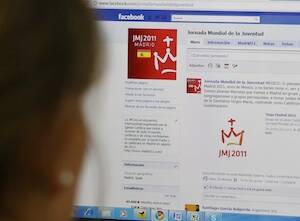The unfolding revolution in Tunisia has come about because of ‘Facebook action,’ said the Rev. Ramon Echeverria, vicar of the diocese of Tunis, who is a member of the Missionaries of Africa (White Fathers). “An unprecedented aspect of the Tunisian revolution for this country and the Arab world in general,” Father Echeverria said, “is the emerging of a new course of action and expression, which we could call the ‘Facebook action,’ with its fundamental concept of freedom…. These young people that took to the streets, causing the flight of Ben Ali, live in a parallel world—the Internet, in which despite censorship they move more freely than in their everyday life. It is this freedom that they demanded and continue to demand.” Father Echeverria said he thought the parallel between the Internet, free by nature, and popular demonstrations is evident. “In fact no party or opposition movement was able to take advantage of the protest because of this spontaneity and unprecedented forms of organization. The Internet allows information to travel instantly not only from one part of Tunisia to another, but across all Arab nations.”
'Facebook Action'
Show Comments (
)
Comments are automatically closed two weeks after an article's initial publication. See our comments policy for more.
The latest from america
What is happening to migrants in courtrooms across the country is a complete embarrassment to the justice system and an affront to human dignity.
Being a kid in the summer is all about existing in an eternal present moment, a feeling of freedom and potential that it will never go away.
Father Thomas Hennen, vicar general of the Diocese of Davenport, Iowa, has been appointed Bishop of Baker, Oregon.
My writing during these past five years is filled with memories of my long journey with God over a lifetime; but very significantly, it is the expression of my prayer at this later time of my life.








